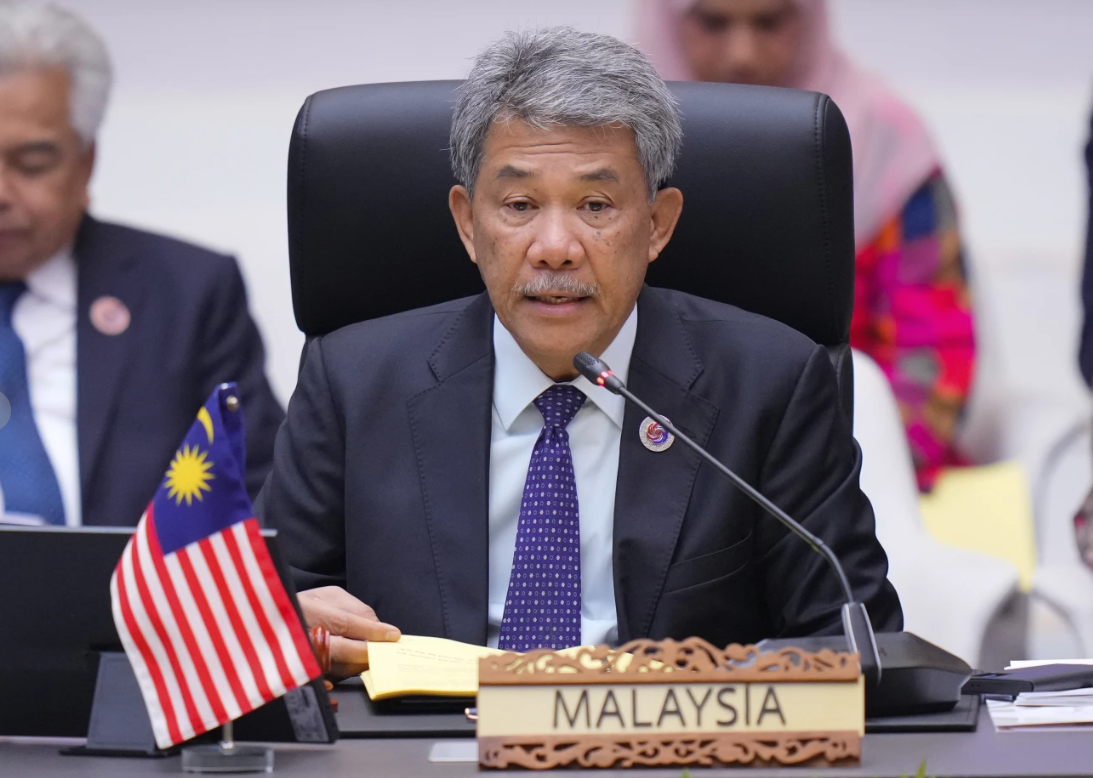Malaysia’s foreign minister, Mohamad Hasan, emphasized on Sunday that Southeast Asian countries need to speed up regional economic integration, diversify their markets, and maintain unity to cope with the challenges posed by global trade disruptions caused by extensive U.S. tariffs.
Speaking at a meeting of foreign ministers from the Association of Southeast Asian Nations (ASEAN), Mohamad also reiterated the group’s call for an end to the ongoing civil war in Myanmar and dismissed the military government’s plans to hold elections later this year as a mere “whitewash.”
“ASEAN countries are among the most impacted by U.S.-imposed tariffs. The trade war between the U.S. and China is severely disrupting global production and trade,” Mohamad said. “A worldwide economic slowdown is likely. We must take this opportunity to deepen our regional economic ties to better protect ourselves from external shocks.”
Many ASEAN members, heavily reliant on exports to the U.S., have been hit hard by tariffs ranging from 10% to 49% imposed under the Trump administration. Six out of the 10 ASEAN nations are among those most affected, which could undermine the bloc’s growth target of 4.7% this year, according to trade officials.
Following a 90-day tariff pause announced by Trump last month, countries like Malaysia, Indonesia, Thailand, and Vietnam quickly entered into trade talks with Washington.
As the current chair of ASEAN, Malaysia has requested a special summit with the U.S. to address the tariffs and hopes to hold this meeting later this year. Additionally, ASEAN is considering Ukraine as a dialogue partner and is moving forward with efforts to admit East Timor as its 11th member.
The annual ASEAN summit is scheduled for Monday, followed by a joint meeting on Tuesday with Chinese Premier Li Qiang and leaders from the Gulf Cooperation Council, which includes Bahrain, Kuwait, Oman, Qatar, Saudi Arabia, and the United Arab Emirates.
Mohamad stressed that ASEAN’s solidarity is vital as the region confronts challenges like climate change and the disruptive effects of artificial intelligence and other emerging technologies. He noted that external pressures, including rivalries between global superpowers, will test the bloc’s unity.
Regarding Myanmar, where the military seized control in 2021, Mohamad said the conflict has spilled across borders, resulting in increased refugees and cross-border as well as cybercrimes, making it a pressing issue for ASEAN. He emphasized that ASEAN prefers to handle its internal matters independently without outside intervention.
Myanmar’s military leaders remain excluded from ASEAN meetings due to their refusal to comply with the group’s peace plan, which calls for negotiations and humanitarian aid delivery.
Mohamad highlighted the potential for dialogue spurred by the devastating earthquake in March that killed more than 3,700 people. He also announced plans to appoint a permanent ASEAN envoy to Myanmar with a three-year term to help strengthen peace efforts; currently, the envoy role rotates annually with the chair country. Mohamad plans to visit Myanmar in June.
He insisted that violence must stop before any elections can be held in Myanmar, stating that elections would be meaningless if only partial participation is allowed. Many opposition parties are either banned or boycotting the vote, and the military reportedly has lost control over large parts of the country.
“What is the point if it’s just a whitewash to fool the international community?” Mohamad said.













